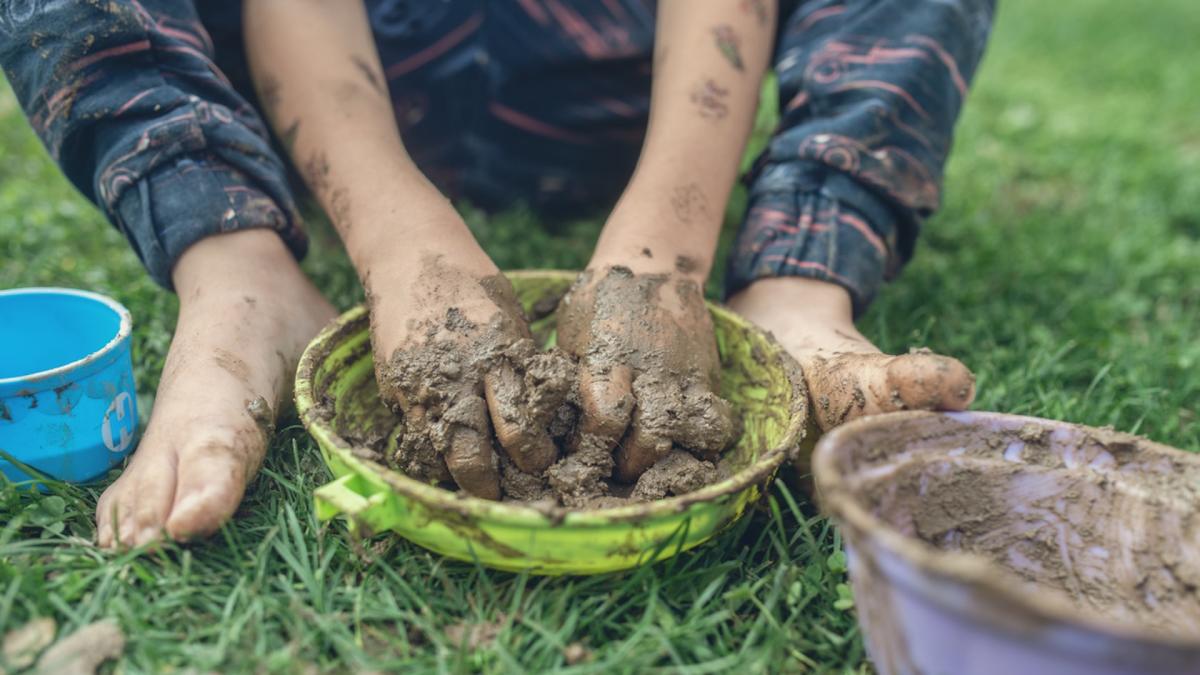Looks like it’s time to prepare your kids for a little play date in the dirt.
Occasionally exposing children to microbes contained within the natural environment, including soil, may be a way to strengthen their immune system, which is developed in the early years of life, Live Science wrote in a recent article.
“Several studies suggest that early exposure to dirt may reduce kids’ risk of developing allergies and autoimmune conditions,” the report said. “It may guard against conditions in which the immune system unhelpfully reacts to allergens or to the body’s tissues.”
The immune system is made up of protective cells that must learn to recognize which foreign substances entering the body are harmless and which cause diseases, such as bacteria and viruses. In that way, they can attack the latter.
Children are vulnerable beings that require vigilance, from checking the components of their toys, to ensuring that their school drinking water is safe, to protecting them from increased heat stress.
“A theory called the ‘old-friends hypothesis’ suggests that the greater the range of microbes we’re exposed to in early childhood, … the better our immune systems will recognize friend from foe,” Live Science explained, as it compared the theory to the more widely known hygiene hypothesis, which suggests that lacking exposure to germs makes us more prone to immune conditions.
Watch now: Expert unpacks key issue with sustainable product packaging, marketing
Not everyone is convinced, though.
“I find this type of advice confusing because it’s not really practical,” a Reddit user said. “How do you prevent exposure to viruses while enabling exposure to beneficial bacteria and other antigens?”
“Not all exposures are equal, and not all exposures are good,” another added on the thread.
Do you think kids learn enough about gardening in school?
Not even close
There could be more focus
It’s probably about right
It doesn’t belong in school
Click your choice to see results and speak your mind
Both theories have been criticized: one for failing to prevent allergies, the other for downplaying the importance of hygiene to avoid diseases.
In 2020, Finnish scientists found that children who had played in the dirt had ended up, within just a month, with a more diverse collection of harmless bacteria on their skin and more immune-regulatory cells and signaling molecules in their blood than those who had been on gravel playgrounds. In other words, exposure to bacteria seemingly helped the immune system mature.
More recently, a Swedish study revealed that children who had grown up on dairy farms or had pets had lower rates of allergies than those who didn’t, in addition to having more bacteria in their guts.
“Without regular microbial interactions, the immune system may turn on the body itself,” an article by The Conversation read.
The microbiome is not the only factor to consider in people’s risk of developing allergies — and, as such, getting a dog tomorrow will not guarantee that you or your children will be free of allergies. Robert Wood, a professor of pediatrics at Johns Hopkins Medicine in Baltimore, told Live Science that as a general message, though, children should be encouraged to play in the dirt.
Wood, however, emphasized that in heavily polluted areas, dirt could be unhealthy for kids due to the contaminants and potentially harmful chemicals that it contains, such as lead and parasites. Thus, dirt is welcome, but not any kind of dirt.
Overall, it’s unlikely that you will find a simpler way to reinforce their immune system than this one. Once again, solutions to our well-being and health can easily be found in nature. So, let’s get muddy?
Join our free newsletter for weekly updates on the latest innovations improving our lives and shaping our future, and don’t miss this cool list of easy ways to help yourself while helping the planet.


